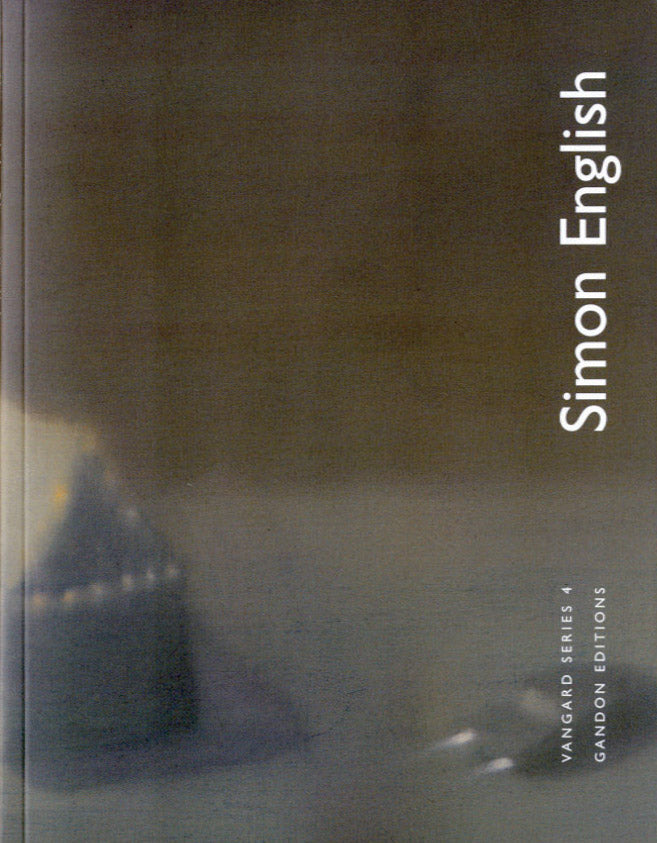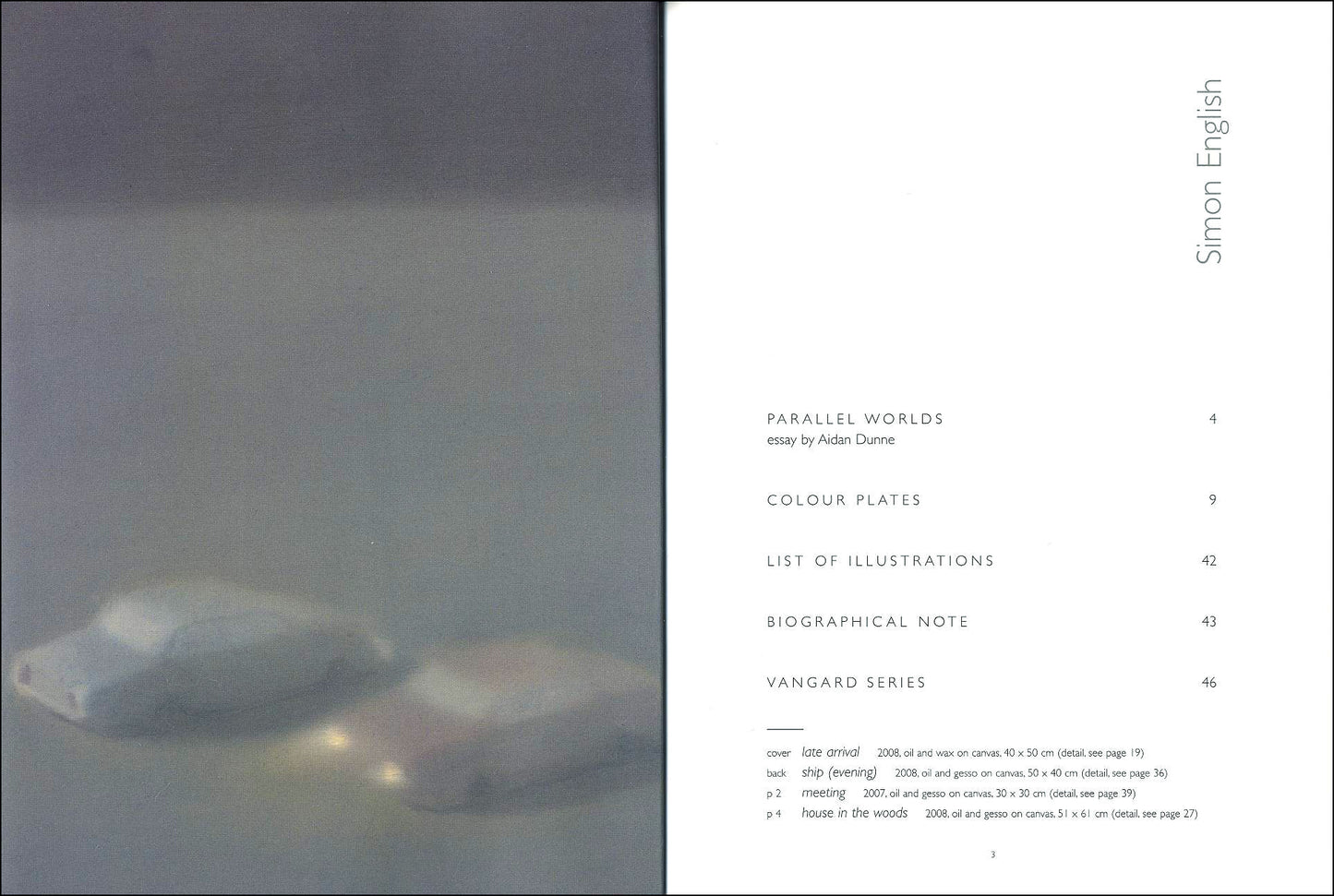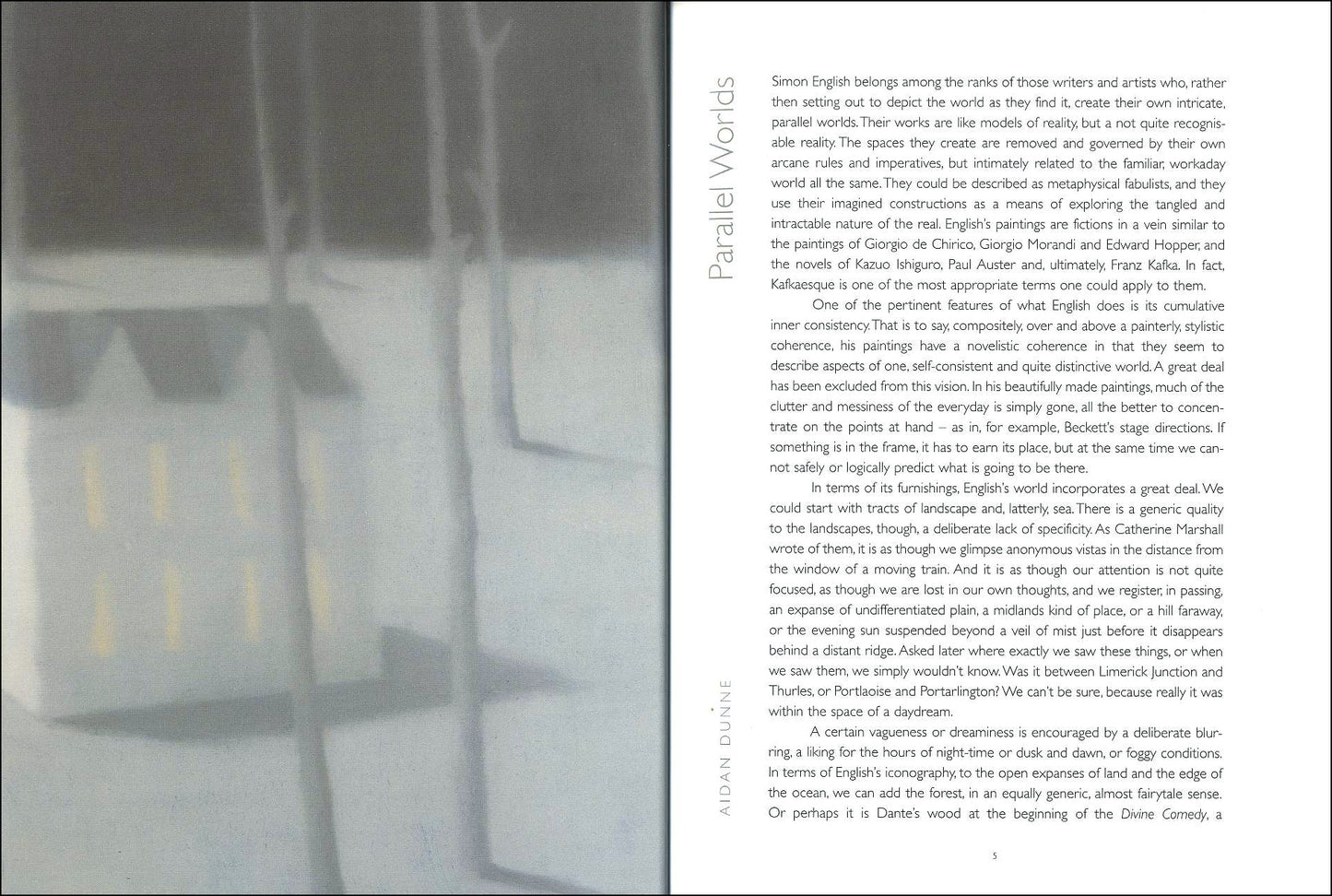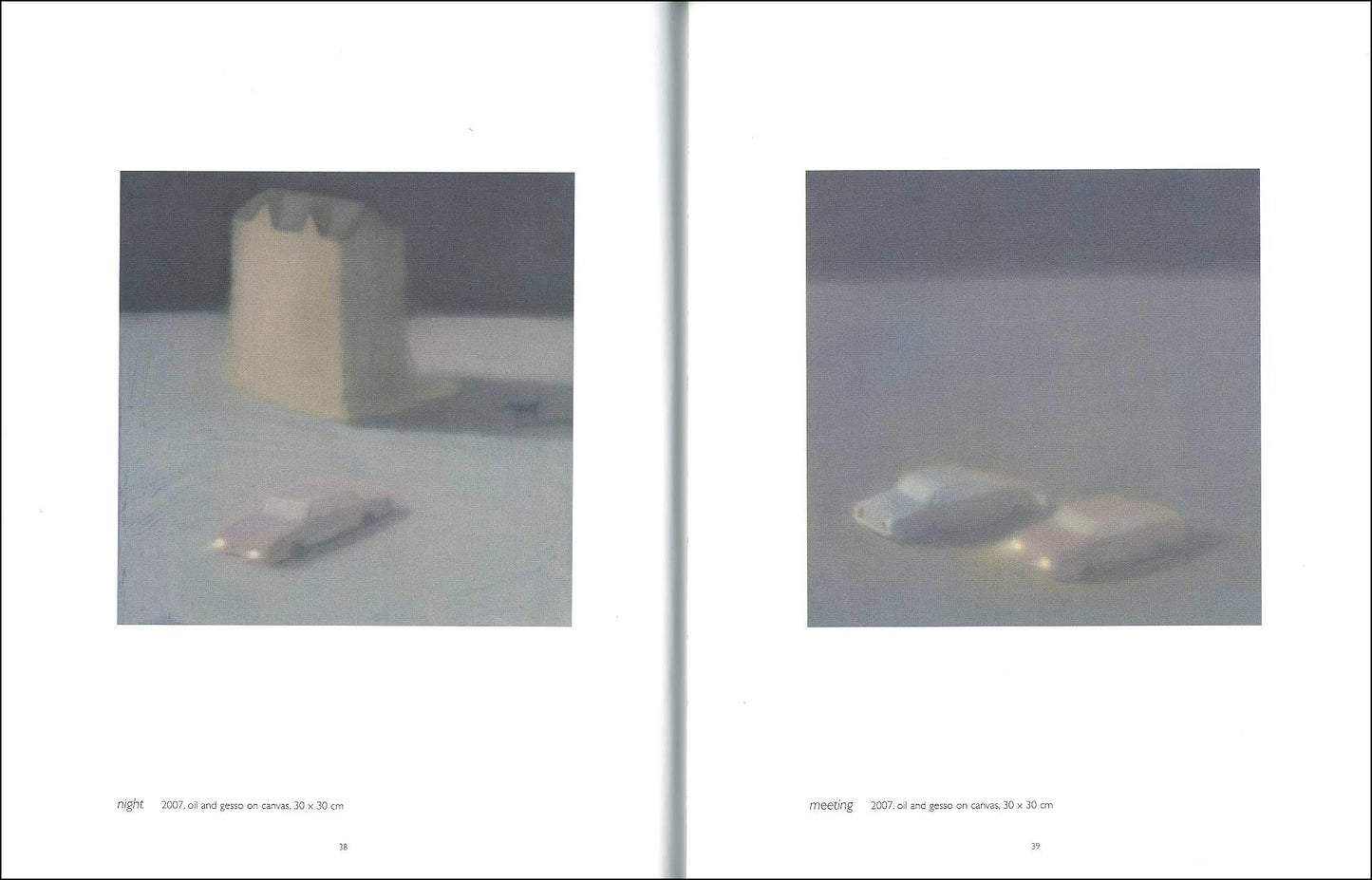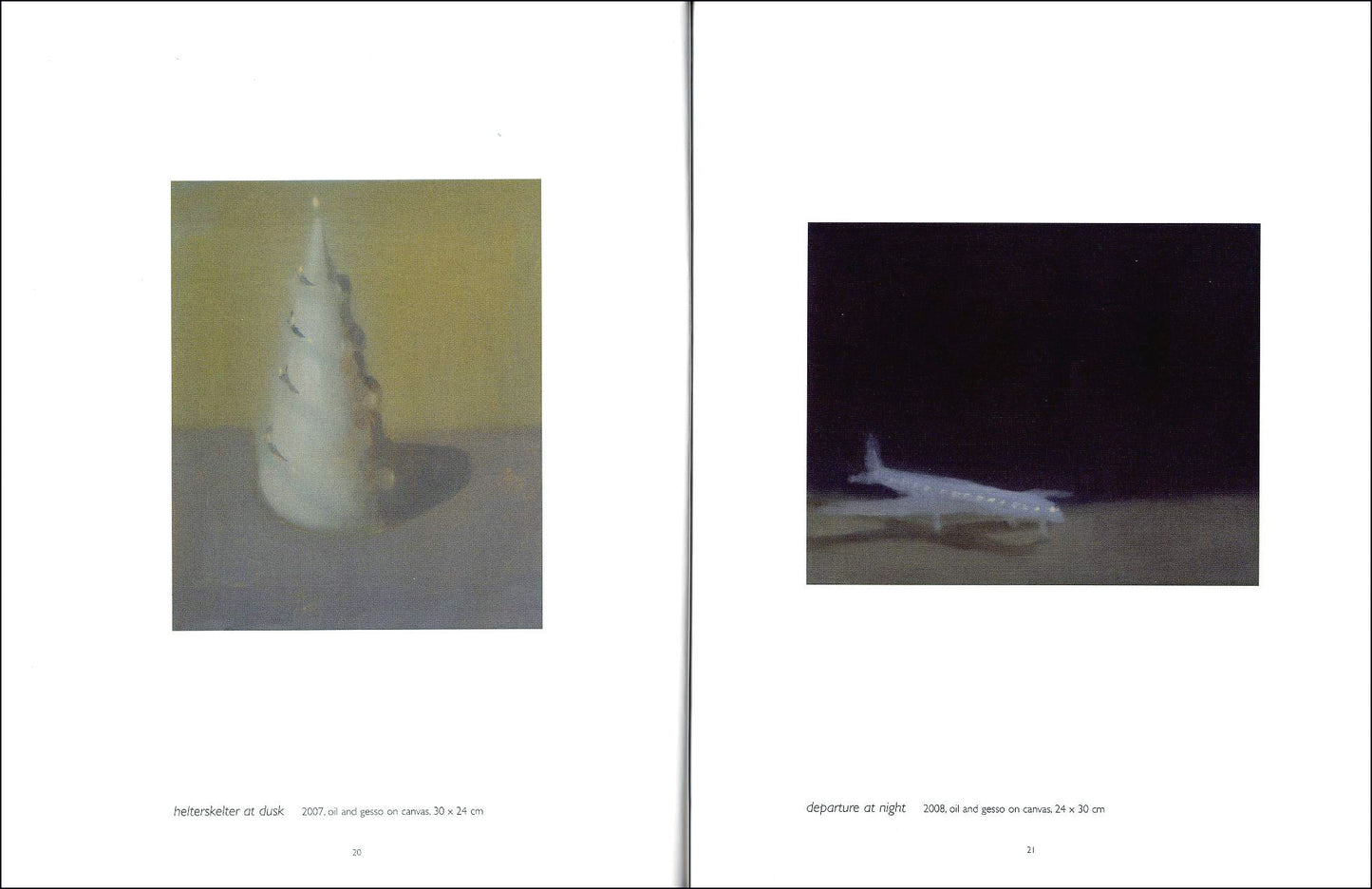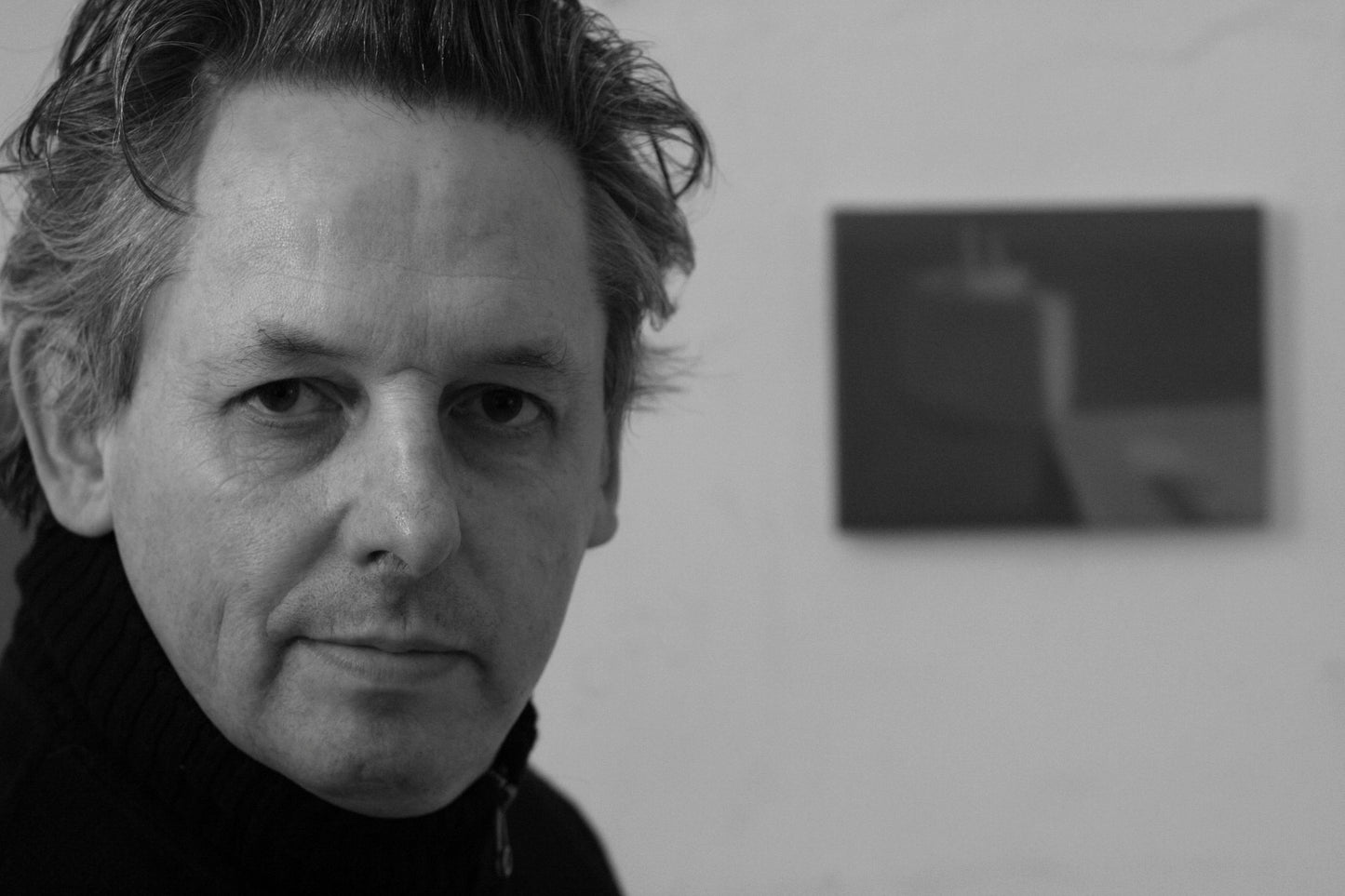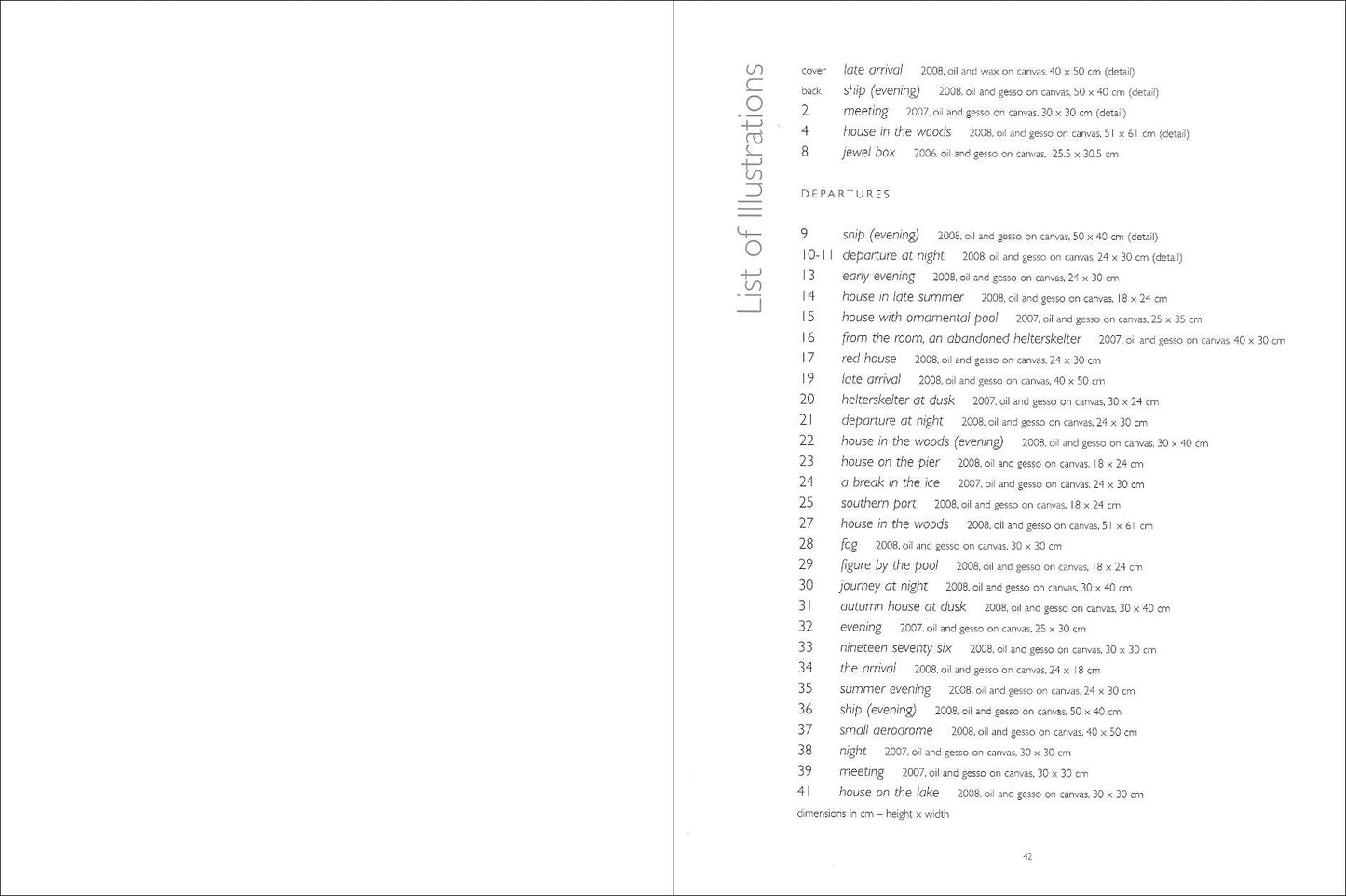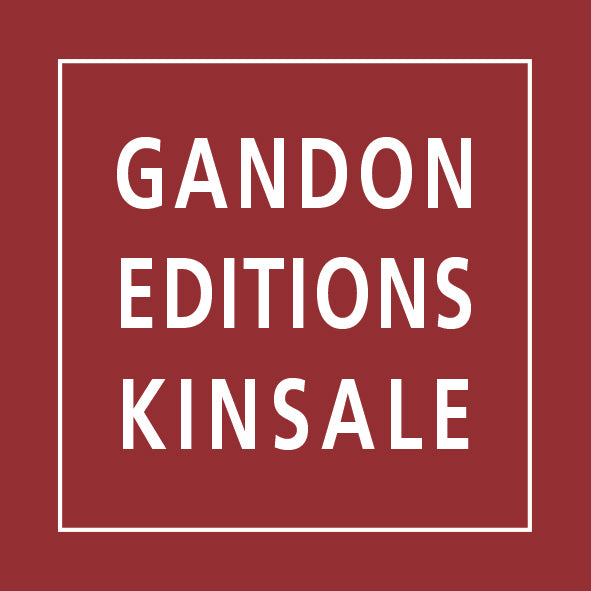Gandon Editions
Vangard °4 – SIMON ENGLISH
Vangard °4 – SIMON ENGLISH
Couldn't load pickup availability
Share
essay by Aidan Dunne
ISBN 978 0948037 627 48 pages (paperback) 22x17cm 37 illus
This book documents Simon English’s 2008 exhibition at the Vangard Gallery in Cork. While the mood of his work is sombre and reflective, the artist evokes a highly appealing and romantic realm of journeys made at night, of small aircraft and ocean liners, remote welcoming houses and mysterious rendezvous. There is something retrospective and magical about Simon English's world. Part of what appeals about the imaginative space conjured up in the paintings is that it always offers room for the viewers' own interpretations.
EXTRACT
"Simon English belongs among the ranks of those writers and artists who, rather then setting out to depict the world as they find it, create their own intricate, parallel worlds. Their works are like models of reality, but a not quite recognisable reality. The spaces they create are removed and governed by their own arcane rules and imperatives, but intimately related to the familiar, workaday world all the same. They could be described as metaphysical fabulists, and they use their imagined constructions as a means of exploring the tangled and intractable nature of the real. English’s paintings are fictions in a vein similar to the paintings of Giorgio de Chirico, Giorgio Morandi and Edward Hopper, and the novels of Kazuo Ishiguro, Paul Auster and, ultimately, Franz Kafka. In fact, Kafkaesque is one of the most appropriate terms one could apply to them. One of the pertinent features of what English does is its cumulative inner consistency. That is to say, compositely, over and above a painterly, stylistic coherence, his paintings have a novelistic coherence in that they seem to describe aspects of one, self-consistent and quite distinctive world. A great deal has been excluded from this vision. In his beautifully made paintings, much of the clutter and messiness of the everyday is simply gone, all the better to concentrate on the points at hand – as in, for example, Beckett’s stage directions. If something is in the frame, it has to earn its place, but at the same time we cannot safely or logically predict what is going to be there."
— from the essay by Aidan Dunne
|
CONTENTS Parallel Worlds essay by Aidan Dunne 4 |
